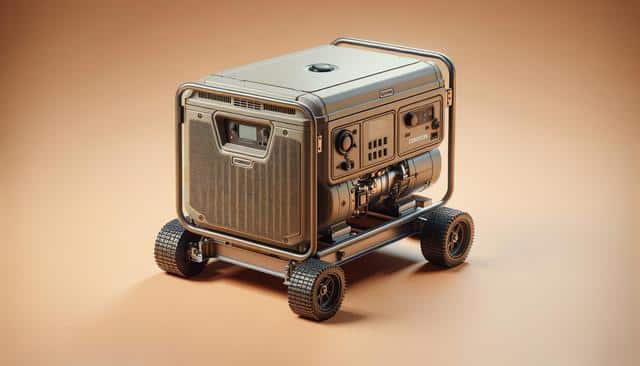Understanding Home Generators
Home generators have evolved significantly over the years, becoming more efficient and user-friendly. These devices serve as a vital backup during power outages, ensuring that households can maintain normalcy even when the grid is down. Understanding the different types of generators, such as portable, standby, and inverter generators, is crucial for making an informed decision. Portable generators offer flexibility and mobility, making them ideal for short-term use during emergencies. Standby generators, on the other hand, are permanently installed and automatically activate during a power outage, offering a seamless transition. Inverter generators are known for their quiet operation and efficiency, making them suitable for powering sensitive electronics. Each type has unique features and benefits, allowing homeowners to choose based on specific needs and preferences.
Benefits of Home Generators
Investing in a home generator provides numerous advantages beyond just backup power. Firstly, it ensures comfort and convenience by keeping essential appliances like refrigerators, heating systems, and medical equipment running during outages. This continuity is particularly important in regions prone to severe weather conditions. Secondly, home generators can enhance the value of a property. Potential buyers often see generators as a significant benefit, especially in areas with frequent power interruptions. Additionally, owning a generator contributes to energy independence, reducing reliance on the main power grid. This aspect is appealing to those interested in sustainable living and exploring alternative energy solutions. Furthermore, modern generators are designed with efficiency in mind, minimizing fuel consumption while maximizing output.
Choosing the Right Generator
Selecting the right generator involves considering several factors to ensure it meets the household’s power needs. Begin by assessing the power requirements of essential appliances and systems. Creating a list of priorities can help in determining the wattage capacity needed. It’s also important to consider the fuel source; common options include gasoline, diesel, natural gas, and propane. Each fuel type has its pros and cons concerning availability, cost, and environmental impact. Another critical factor is the generator’s noise level, which can influence comfort, especially in residential areas. Lastly, consider the generator’s ease of installation and maintenance. Some models require professional installation, while others can be set up by the homeowner.
Installation and Maintenance
Proper installation is key to the safe and effective operation of a home generator. It is often recommended to hire a licensed electrician to handle the installation of standby generators, ensuring compliance with local building codes and regulations. Regular maintenance is also essential to prolong the generator’s lifespan and ensure reliability. Maintenance tasks typically include checking oil levels, inspecting filters, and testing the system periodically. Some generators come with self-diagnostic features that alert homeowners to potential issues. Additionally, keeping the generator in a well-ventilated area is crucial to prevent carbon monoxide buildup, which can be hazardous.
Environmental Considerations
While home generators provide critical benefits, it’s important to consider their environmental impact. Traditional generators that run on fossil fuels can contribute to emissions and pollution. Homeowners interested in greener options can explore generators that utilize cleaner energy sources, such as natural gas or propane. Another environmentally friendly option is connecting the generator to a renewable energy system, such as solar panels. This combination can significantly reduce the carbon footprint while providing reliable power. Homeowners can also implement energy-saving practices to minimize generator usage, such as using energy-efficient appliances and reducing overall power consumption.
Conclusion
Home generators play a pivotal role in ensuring energy security and independence, offering peace of mind during power outages. By understanding the different types of generators and their respective benefits, homeowners can make informed decisions that align with their needs and values. Proper installation and regular maintenance are essential for optimal performance and safety. Additionally, considering the environmental impact of generators encourages more sustainable choices. As technology advances, home generators continue to evolve, offering more efficient and eco-friendly solutions for the modern household.
